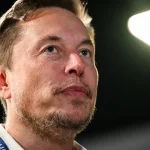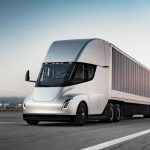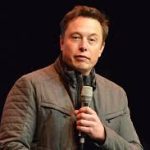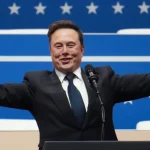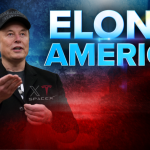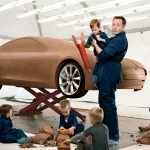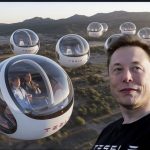Elon Musk Stays Confident Amid Tesla Boycott Wave | What’s Next for Tesla?
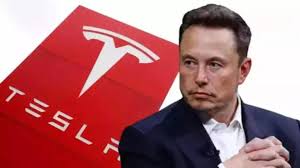
Elon Musk Stays Confident Amid Tesla Boycott Wave | What’s Next for Tesla?
Introduction: Weathering the Storm of Controversy
Elon Musk, the founder and CEO of Tesla, has long been a figure of controversy, known for his bold actions, provocative statements, and game-changing innovations in the electric vehicle industry. However, recent months have seen an escalating wave of boycotts and public pushback against Tesla, fueled by a variety of factors including Musk’s outspoken political views, his management style, and the company’s handling of workplace issues. Despite these challenges, Musk remains confident, stating that Tesla’s mission to accelerate the world’s transition to sustainable energy is unshaken. As the backlash intensifies, many are left wondering what’s next for Tesla and how the company plans to navigate this turbulent period.
The Tesla boycott wave comes at a critical time for the company, which has seen remarkable growth over the past few years, with electric vehicles (EVs) increasingly becoming mainstream and Tesla solidifying its position as the leader in the EV market. Still, as Tesla moves forward with its ambitious expansion plans and increasing production capacity, the question arises whether the backlash against Musk and his company will impact its long-term success. Amid the growing tensions, Musk’s unyielding confidence in Tesla’s vision suggests that he is preparing for a strategic approach to weather the storm and continue driving Tesla’s progress forward.
The Origins of the Boycott: Politics, Controversy, and the Power of Social Media
The ongoing Tesla boycott can be traced back to several key moments in Elon Musk’s career, but particularly, his frequent public statements on political and social issues. As the CEO of Tesla, Musk has amassed a significant following on social media platforms, especially Twitter, where he has been known to share his unfiltered opinions on topics ranging from government regulations to free speech. In recent times, his outspoken support for certain political movements and figures has resulted in public criticism and calls for boycotts from various activist groups and Tesla consumers.
One of the main catalysts for the Tesla boycott has been Musk’s controversial comments surrounding his political stances, particularly in regard to the 2020 U.S. presidential election, the ongoing COVID-19 pandemic, and his public support for deregulation. His stance on issues such as the shutdowns during the pandemic and his skepticism of government intervention in the private sector have alienated certain segments of Tesla’s customer base, many of whom have been advocates for more progressive policies. In addition, Musk’s frequent use of social media to voice his views has amplified the backlash, as his tweets often spark intense debates and reactions from both sides of the political spectrum.
The rise of social media activism has played a pivotal role in the Tesla boycott, as platforms like Twitter, Facebook, and Instagram have become the arenas for organizing consumer protests against Musk and his company. Hashtags like #BoycottTesla have trended across social media, calling for consumers to reject Tesla’s products due to their association with Musk’s controversial stances. While these calls have not necessarily led to widespread drops in sales, they have raised questions about the long-term impact of such public sentiments on Tesla’s brand image and customer loyalty.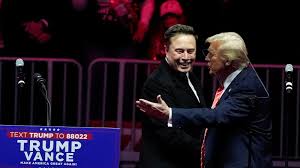
Tesla’s Response: Confidence and Strategy Amidst the Backlash
Despite the mounting public criticism, Elon Musk has remained largely unshaken, maintaining his confidence in Tesla’s ability to thrive even amid a boycott. Musk has repeatedly emphasized that Tesla’s mission and its commitment to accelerating sustainable energy adoption remain as strong as ever. He has also pointed to Tesla’s remarkable financial performance, highlighting the company’s profitability and its growing presence in global markets as proof that the backlash has not significantly harmed Tesla’s bottom line.
One key strategy that Musk has employed in response to the boycott wave is to focus on Tesla’s long-term vision rather than short-term distractions. Rather than engaging in extensive back-and-forth arguments over social media, Musk has chosen to remain focused on advancing Tesla’s technology, expanding production capabilities, and ensuring that the company remains on track to meet its ambitious goals for the future. This approach aligns with Musk’s broader philosophy of staying ahead of the curve in the face of adversity, as he has done with previous challenges throughout his career, from the early days of Tesla to SpaceX’s journey to commercial spaceflight.
Additionally, Tesla’s commitment to innovation and sustainable energy solutions continues to be a powerful tool in the company’s arsenal. While the boycott may have dented the company’s image in certain circles, Tesla remains the leader in the electric vehicle market, with its products representing some of the most advanced and desirable electric cars available today. Tesla’s focus on research and development, its expansion into energy products such as solar panels and energy storage systems, and its drive toward fully autonomous vehicles give it an edge over its competitors, ensuring that Tesla’s future success is not solely reliant on the whims of public opinion.
What’s Next for Tesla: Navigating the Path Ahead
As Tesla moves forward, the company faces several critical challenges and opportunities that will shape its trajectory in the coming years. The ongoing boycott and the controversies surrounding Elon Musk’s leadership will undoubtedly be a factor in how the company navigates the future. However, it is important to recognize that Tesla’s strength lies in its ability to innovate and scale at an impressive pace, and this will likely continue to be a driving force behind its success.
One of the key areas of focus for Tesla will be the expansion of its production capacity, particularly with the opening of new Gigafactories in Texas, Berlin, and other locations worldwide. These factories will play a crucial role in scaling up Tesla’s EV production to meet the growing demand for electric vehicles, and they will also help the company solidify its position as a global leader in the electric mobility sector. As governments around the world continue to implement stricter emissions regulations and promote the adoption of clean energy, Tesla is well-positioned to capitalize on the expanding market for electric vehicles.
Another important area where Tesla could see significant growth is in its energy division. The company’s solar products and energy storage solutions, which allow homes and businesses to generate and store renewable energy, have the potential to revolutionize the global energy market. By focusing on expanding its energy business alongside its EV operations, Tesla could become a dominant player in both the transportation and energy sectors, further solidifying its role as a driver of sustainable innovation.
Finally, Tesla’s continued development of autonomous driving technology remains a critical factor in the company’s future. Full self-driving (FSD) technology has the potential to transform the transportation industry by making roads safer, more efficient, and less reliant on human drivers. If Tesla is able to fully realize its vision for autonomous driving, it could open up new revenue streams and create a massive shift in the global transportation landscape.
Conclusion: Elon Musk’s Unwavering Confidence
Despite the ongoing boycott wave and public backlash, Elon Musk’s unshakable confidence in Tesla’s mission and his strategic focus on long-term goals suggest that the company is prepared to weather the storm and emerge even stronger. While the controversy surrounding Musk’s leadership and his outspoken views may present challenges in the short term, Tesla’s commitment to innovation, sustainability, and cutting-edge technology positions it well for continued success in the future.
As Tesla continues to expand its global footprint, innovate in the fields of electric vehicles, energy, and autonomous driving, and advance its mission to accelerate the world’s transition to sustainable energy, Musk’s leadership will remain a key factor in determining the company’s fate. While boycotts and public criticism may have an impact on Tesla’s brand image, the company’s resilience and ability to deliver groundbreaking products suggest that it will remain at the forefront of the EV revolution—and that its best days may still lie ahead.
